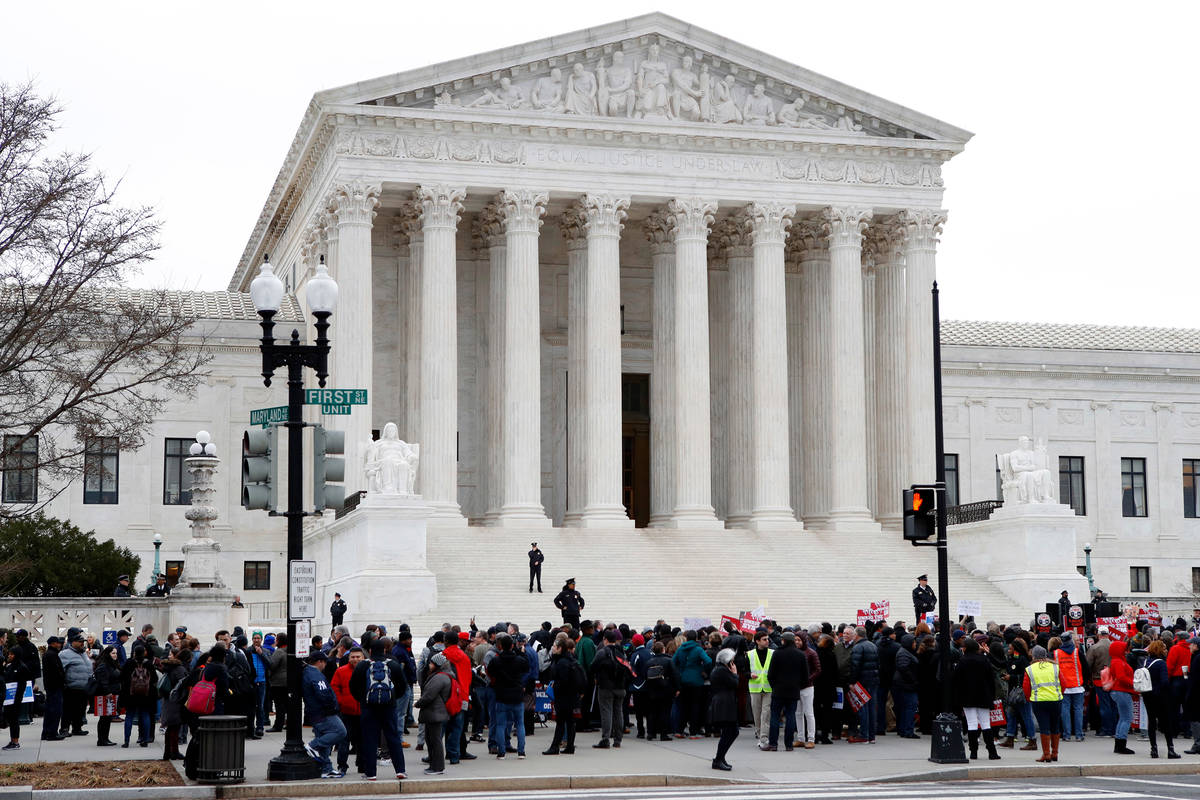EDITORIAL: High court expands work discrimination protections
The Supreme Court reached a just conclusion Monday in determining that the 1964 Civil Rights Act protects gay and transgender workers from discrimination on the job. But the decision raises legitimate questions about the separation of powers and how far courts may go to “interpret” legislative language.
The 6-3 ruling, written by Neil Gorsuch, an appointee of President Donald Trump, involved two sets of cases from two gay men and a transgender woman who argued they were illegally fired over their sexual orientation or gender identity. The question before the court was whether federal civil rights law — which prohibits, among other things, discrimination “because of sex” — applied in these cases.
Opponents argued that the wording of the law — enacted more than 55 years ago — applied only to one’s biological status and that Congress had failed on more than two dozen occasions to enact legislation that specifically expanded civil rights laws to include gender identity. Justice Gorsuch and the majority, however, rejected that reasoning.
“An employer who fires an individual merely for being gay or transgender defies the law,” he wrote, later adding, “It is impossible to discriminate against a person for being homosexual or transgender without discriminating against that individual based on sex.”
The ruling is a victory for compassionate inclusivity. But as Justice Samuel Alito noted in his dissent, the majority’s liberal interpretation of the law comes close to usurping the role of Congress.
“There is only one word for what the court has done today: legislation. … A more brazen abuse of our authority to interpret statutes is hard to recall,” Justice Alito wrote, arguing that lawmakers in 1964 had no intention of including protections for “sexual orientation or transgender status” in the law.
Justice Alito advanced the notion that the ruling will lead to a host of other lawsuits having nothing to do with employment discrimination. But Justice Gorsuch insisted that Monday’s ruling was not expansive. “We do not purport to address bathrooms, locker rooms or anything else of the kind,” he wrote.
We shall see.
Gay and gender activists “have advanced powerful policy arguments and can take pride in today’s result,” wrote Justice Brett Kavanaugh, the court’s newest member, in a separate dissent. “Under the Constitution’s separation of powers, however, I believe that it was Congress’s role, not this court’s, to amend” the Civil Rights Act.
Justice Gorsuch has a principled and important point regardless of the equitable outcome to this case. Monday’s decision sanctions a more aggressive judiciary when it comes to discerning legislative intent. That can cut both ways. Those who cheer judicial activism when the result suits their goals can’t very well decry the practice when it doesn’t.

















